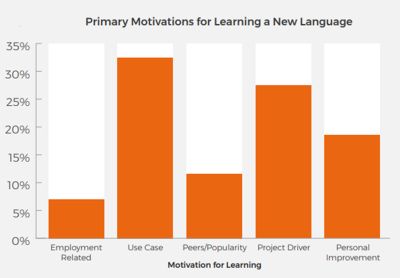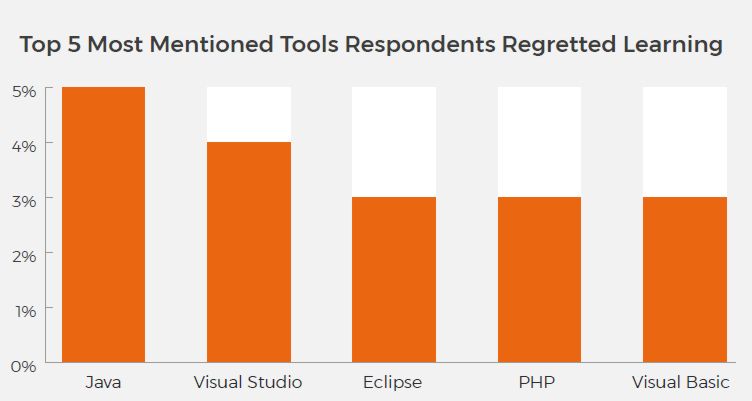| Programmers Choices and Regrets |
| Written by Janet Swift |
| Wednesday, 12 June 2019 |
|
Packt has shared the results of its 2019 Skill Up Survey. As well as providing information on the languages programmers use, it investigates why they choose them. It also reveals what programmers regret having learned. This year 4520 people took part in the Packt Skill Up Survey, down from nearly 8000 in 2018 and again Europe was where they were concentrated (43%) followed by North America (US 21% plus Canada 3%. Three quarters of respondents claimed over 5 years of experience and 68% were 35 and older, making the sample more mature than average among the population of all software developers. Only 6% were female, which is an unrepresentatively small proportion. Even so its finding are worth attention, particularly with regard to programming languages. The survey report explains its interest in this information saying: Programming languages are an important identifier for many engineers. The language you use says a lot about you as a developer - from what you do, to who you work for, and maybe even what you value. There are plenty of studies on the changing landscape of programming languages. We wanted to use it almost as a demographic point, a way of diving deeper into the values of everyone who responded to this year’s survey. While this survey has nearly the same top languages as other surveys they are in a different order. In particular JavaScript, which came top in the Hacker Rank survey is only in a fairly distant 4th place. However the two rankings are entirely different. In the Hacker Rank survey the question was which languages do you "know" and respondents (who were on the whole younger and less experienced) could make multiple choices. The Skill Up survey asked for their "primary language" so by definition only one. Python was clearly top with almost a quarter of respondents claiming it and Java came next with 17%, followed by C#. There are some interesting differences between age groups, the main one being that SQL is more likely to be your primary language the older you are and JavaScript is more prevalent the younger you are, as is PHP. For the top four languages Packt delved a little deeper to find out why developers choose these programming languages and discovered subtly different reasons between the languages: C# and Java, for example, are primarily selected for employment reasons, while JavaScript is selected for projects. One of the reasons for this is that languages like Java and C# are well-established and form the backbone of much enterprise software. It’s possible that many developers using Java, for example, are working in organizations where Java has been the development language of choice for decades. In contrast, the main driver behind the selection of Python is use case. This means that Python is widely viewed as a programming language that solves problems. It is, for the developers that use it, a language that is adaptable to the context in which it is being deployed. For the top six programming languages the survey looked at which other language respondents want to learn next.
Packt also asked why devs chose to learn a new language: The answer shows that Use Case, which boils down to being a powerful general-purpose language, is the most important factor, followed by applicability to projects. Personal improvement was more important than peer pressure/popularity of language and employment was relegated behind all these. Another interesting finding is that 45% of respondents regretted having learned a new tool. Here's the top 5 tools in question: Note that the percentages are small - 3% for Eclipse, PHP and Visual Basic, 4% for Visual Studio and 5% for Java. With regard to Java, its broad decline, the uncertainty with Oracle changing licensing for the JDK and its complexity were all cited as reasons, and one respondent described it as: "the COBOL of modern programming" Its easy to agree with all the negative points made about Java, but it's equally obvious that it is still going to be with us for quite a while and be difficult to avoid entirely for even longer - which makes the analogy with COBOL very apt.
More InformationSkill Up 2019 - Developer Skills Report Related ArticlesPackt Skill Up Survey Shows Programmers Are Mostly Full Stack
Language Learning Insights From HackerRank 2019 Survey Stack Overflow Publishes Largest Ever Survey To be informed about new articles on I Programmer, sign up for our weekly newsletter, subscribe to the RSS feed and follow us on Twitter, Facebook or Linkedin.
Comments
or email your comment to: comments@i-programmer.info |
| Last Updated ( Wednesday, 15 April 2020 ) |


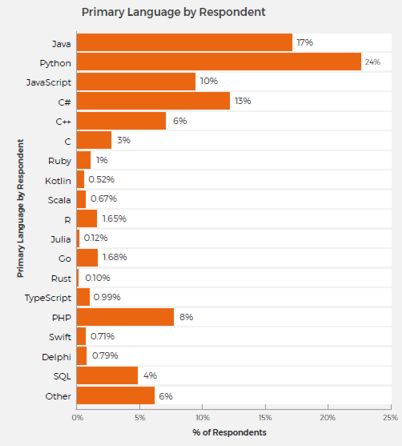
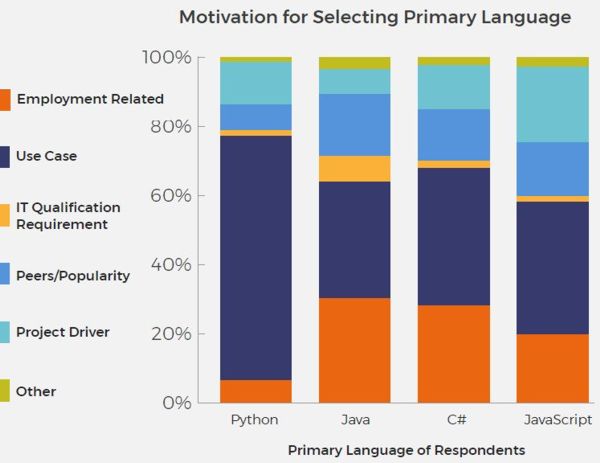
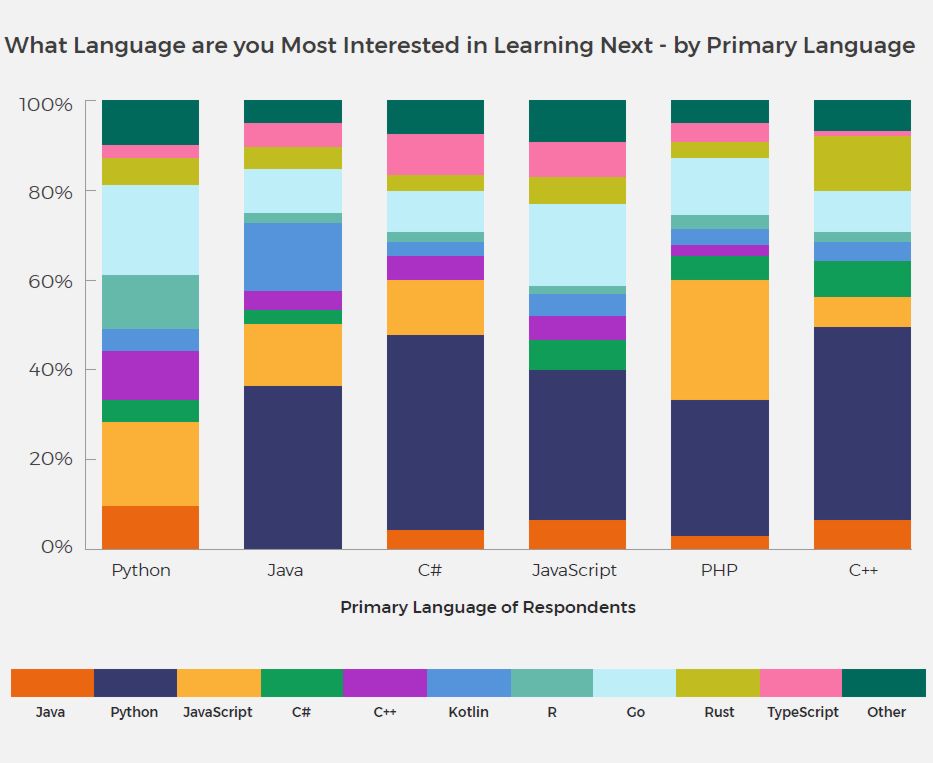 This provided a clearcut indication of the popularity of Python with between a third and a half of developers with other primary languages wanting to learn it. JavaScript and Go were the two languages JavaScript developers wanted to learn - about a fifth each with R also a popular choice. Kotlin was the second choice for Java programmers with JavaScript almost as popular. JavaScript tied with Python as next language for PHP programmers. JavaScript was the language around 10% of C# devs were interested in and almost as many chose TypeScript and, after Python, Rust appealed most to C++ programmers.
This provided a clearcut indication of the popularity of Python with between a third and a half of developers with other primary languages wanting to learn it. JavaScript and Go were the two languages JavaScript developers wanted to learn - about a fifth each with R also a popular choice. Kotlin was the second choice for Java programmers with JavaScript almost as popular. JavaScript tied with Python as next language for PHP programmers. JavaScript was the language around 10% of C# devs were interested in and almost as many chose TypeScript and, after Python, Rust appealed most to C++ programmers. 